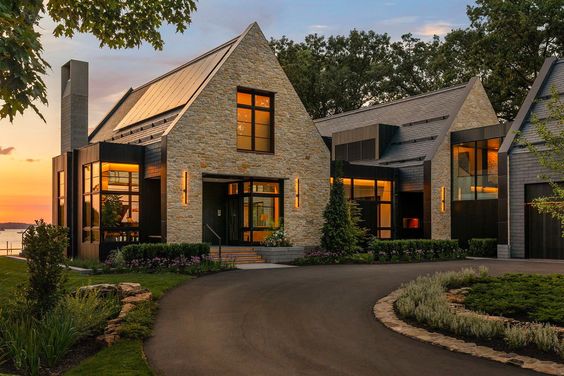Introduction
In today’s competitive real estate market, it is crucial for developers and agents to adopt innovative marketing strategies that captivate potential buyers. One such strategy that has gained significant traction is the integration of Virtual Reality (VR) technology into real estate marketing efforts. By leveraging the power of 3D modeling and rendering services, VR is revolutionizing the way properties are showcased and experienced. So let’s dive into how VR enhances marketing strategies in the real estate industry.
Immersive Property Showcasing
VR offers an immersive and interactive platform for showcasing properties. By combining 3D house drawing and modeling with VR technology, potential buyers can explore virtual properties as if they were physically present. They can navigate through rooms, examine details, and gain a comprehensive understanding of the property’s layout, size, and overall design. This immersive experience captivates buyers and creates a lasting impression, setting properties apart from the competition.
Immersive VR Tours:
With architectural VR rendering, real estate agents can provide potential buyers with immersive VR tours of properties without the need for physical visits. By creating realistic virtual environments, agents can showcase properties in detail, allowing potential buyers to explore every nook and corner. This eliminates the need for multiple property visits, saving both time and money for the agent and the buyer. VR tours also enable remote buyers to view properties from any location, expanding the reach of the agent’s marketing efforts.
Virtual Staging and Customization
With VR technology, virtual staging has become a powerful tool in real estate marketing. By utilizing 3D modeling and rendering services, empty spaces can be transformed into beautifully staged environments. Potential buyers can visualize various furniture arrangements, color schemes, and décor options, enabling them to envision the full potential of the space. This flexibility and customization cater to individual preferences and help buyers emotionally connect with the property.
Remote Property Tours
VR technology enables remote property tours, eliminating geographical barriers and saving time for both buyers and agents. Through 3D house drawing and rendering services, developers can create virtual tours that accurately represent the property. Buyers can explore multiple properties from the comfort of their homes, saving the need for physical visits until they have narrowed down their choices. This convenience enhances the overall buying experience and increases the efficiency of the sales process.
Enhanced Marketing Collateral
Traditional marketing collateral such as brochures, flyers, and promotional videos can be transformed through VR. By integrating, modeling, and rendering services, developers can create visually stunning and immersive marketing materials. Potential buyers can dive into a virtual representation of the property, experiencing its unique features and amenities in a way that traditional media cannot replicate. This cutting-edge approach not only grabs attention but also differentiates properties in a crowded market.
Virtual Reality Advertising
VR offers exciting opportunities for real estate advertising. With the aid of 3D modeling and rendering services, developers can create captivating VR experiences as part of their marketing campaigns. By leveraging VR advertising platforms, potential buyers can engage with the property in an interactive and memorable manner. VR ads allow viewers to explore the property, interact with design elements, and access additional information, thereby generating higher levels of interest and engagement.
Conclusion
Incorporating VR technology into real estate marketing strategies has become a game-changer for developers and agents. By utilizing 3D house drawing and rendering services, VR enhances property showcasing, enables virtual staging and customization, facilitates remote property tours, enhances marketing collateral, and opens up new avenues for VR advertising.
These advancements not only attract potential buyers but also provide a more immersive and engaging experience, leading to increased sales conversions and a competitive edge in the real estate market. Embracing VR in marketing strategies is a transformative step towards the future of real estate marketing. Fill up our form to know how we can improve your sales.

